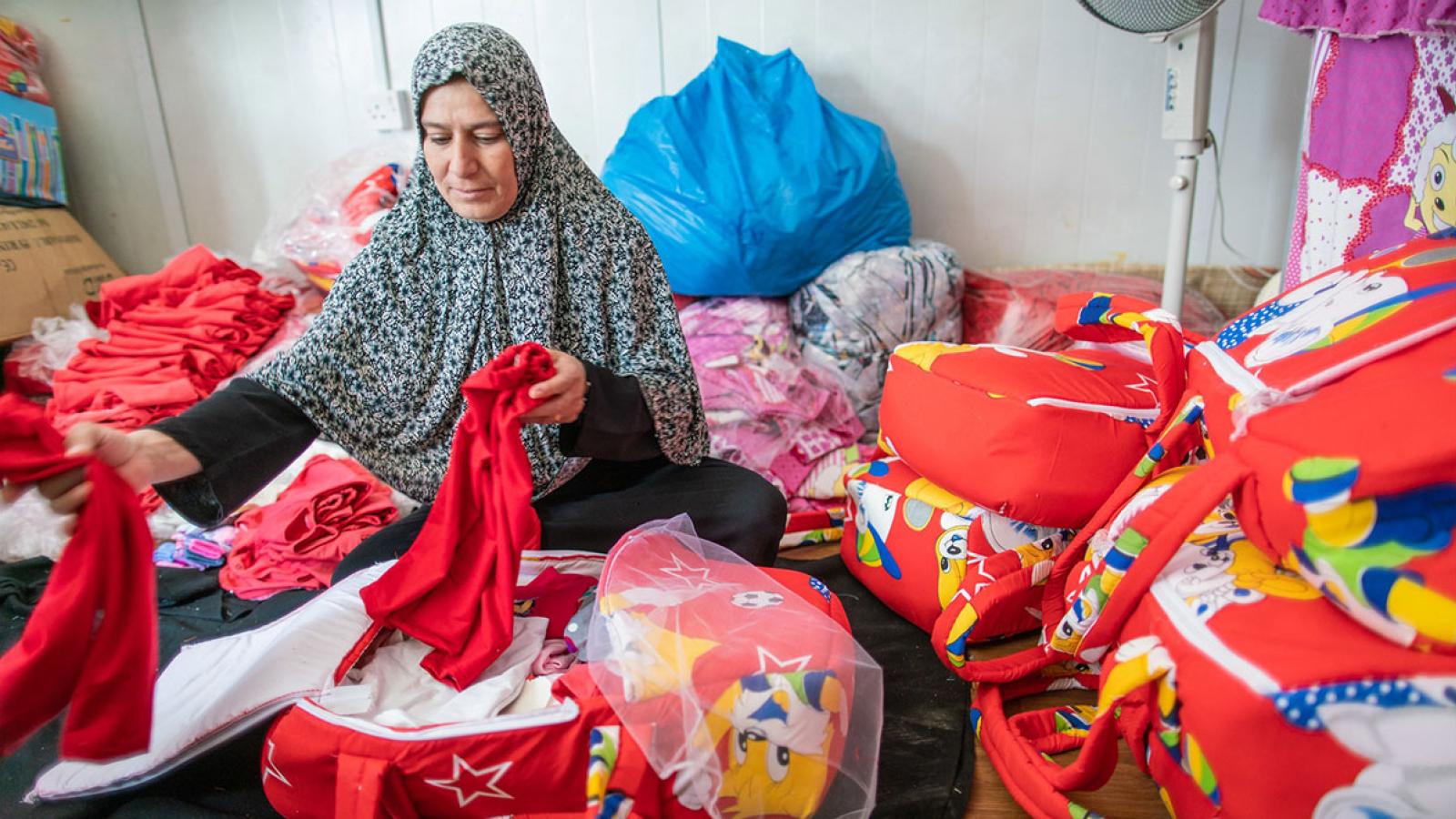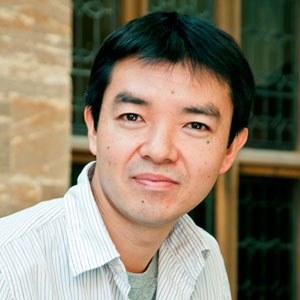Transferring responsibility: the role of developmental ‘buzzwords’ in the international refugee regime
Under current development-led approaches to refugee policy, three buzzwords – self-reliance, resilience and economic inclusion – are key drivers, supposedly benefitting both refugees and host communities. But these buzzwords shift responsibility for refugees’ wellbeing away from the international system to displaced people and host communities themselves – with harmful consequences for both.

Refugee assistance has typically been viewed as humanitarian in nature. Yet in recent years, the international refugee regime, led by the Office of the United Nations High Commissioner for Refugees (UNHCR) and northern donor states, has increasingly emphasised development-oriented policies. This is closely connected to the emergence of massive, irresolvable refugee crises, which put the international regime at risk of failing to meet its mandate to safeguard refugees’ wellbeing. In response, three buzzwords – self-reliance, resilience and economic inclusion – have gained prominence in refugee policy arenas.
Fashionable for a particular time, buzzwords play a crucial role in framing problems and shaping solutions. Powerful policymakers use such words to legitimise their approaches to designing refugee assistance on the ground.
Yet despite their significance, the role of buzzwords is rarely scrutinised. In a recent article, I analyse the joint roles of “self-reliance”, “resilience” and “economic inclusion” as buzzwords shaping development-oriented approaches to refugees. UNHCR sees economic inclusion as enhancing – and enhanced by – refugees’ self-reliance and resilience, empowering them to meet their needs sustainably and even benefiting host economies. Drawing on a policy document review and over 300 qualitative interviews with refugees, humanitarian organisation staff and government officials, I argue that development policies led by these buzzwords can damage both refugees and hosts, and suggest an alternative approach.
Global drivers of a development-led paradigm
The interviews took place primarily in Sub-Saharan Africa between 2008 and 2019, as part of my research into refugees’ economic strategies and pursuit of self-reliance. During this time, numerous long-term refugee crises emerged, coupled with reductions in humanitarian aid funding. In response, the UNHCR’s 2019 Global Refugee Forum reaffirmed a stronger focus on market-oriented developmental approaches to refugees and receiving communities in developing countries, which host most refugees.
This new development paradigm has required the international refugee regime to rapidly alter conventional perceptions towards refugees. Having typically portrayed refugees as “helpless victims” or an “undue burden” on hosts, UNHCR now represents them as a significant “economic opportunity” for hosts, with the potential to boost development. In this context, notions of self-reliance, resilience and economic inclusion have increasingly gained powerful currency.
Often rephrased as “helping refugees help themselves”, self-reliance represents a significant shift from conventional forms of refugee assistance that provide free material aid – “give a man a fish” – to developmental thinking – “teach a man to fish”. This nurtures resilience, understood as the capacity to bounce back and gain strength from unanticipated adversities. The resilience approach urges refugees and host populations to work together for positive economic outcomes through improved social cohesion – a “win-win” situation for both, with refugees becoming vital contributors to host economies. UNHCR emphasises that displaced people should have access to economic opportunities, be served through host countries’ national systems, and feature in local and regional development plans. The agency explicit connects refugees’ economic inclusion with the Sustainable Development Goals’ promise to “leave no-one behind”.
Reinforcing buzzwords with moral dimensions
While the promotion of these buzzwords is assumed to benefit both refugees and hosts, scholars challenge this, showing their widespread adoption as promoting neoliberal principles of market primacy, individual responsibility and the dismantling of social support. These principles reassess refugees and hosts in terms of their ability to stand alone, embrace risks, manage challenges and improve their living conditions. Refugees must be self-reliant and resilient enough to weather precarity and become economic assets. Host communities, rather than suffering under the burden of accommodating refugees, are viewed as standing to benefit from their economic contribution.
The positive values attached to these buzzwords are reinforced by moral dimensions. Self-reliance counters “aid dependency”, despite lack of evidence that long-term assistance generates indefinite reliance on external support. Resilience is opposed to “vulnerability”, while economic inclusion counters economic “exclusion” by host communities – seen by the international refugee regime as an immoral “disempowering” of refugees from fending for themselves and contributing to the economy.
Yet evidence indicates that development policies underpinned by these buzzwords bring little to refugees and hosts, and can harm both. Many refugees are excluded from host countries’ formal economies by barriers to obtaining work permits. Turning to casual work in informal sectors, they face competition and hostility from local labourers in increasingly overcrowded markets. Displaced people and their hosts are made responsible for finding solutions without support from humanitarian organisations.
Offloading responsibility to refugees
Despite this evidence, the three buzzwords are still gaining significance within the global refugee regime. I argue that this is rooted in humanitarian actors’ need to “reframe” displacement crises into development opportunities. The absence of effective solutions to the daunting scale of protracted displacement threatens the legitimacy of the international refugee regime. The three buzzwords serve to present this lack of solutions as an “opportunity" for hosting populations and refugees themselves, in order to sustain the damaged refugee regime. This approach also enables powerful northern states to “contain” refugees in the global South, presenting development-led approaches based on self-reliance, resilience and inclusion as tools for empowering refugees and hosts.
Repackaging the presence of refugees as a development opportunity, UNHCR asks national governments and local communities to absorb refugees into existing markets, as an alternative to delivering assistance. Under traditional humanitarian aid, UNHCR and partner agencies were primarily held responsible for the results. Under development-oriented approaches, finding ‘fish’ becomes the prime responsibility of refugees and their hosts. If they fail, it is their fault.
When anticipated development outcomes do not materialise, the aid community often blames refugees’ “dependent mentality” and “exclusion” by their hosts. Yet resilience and self-reliance are not inherent conditions available to everyone, including refugees, while economic inclusion assumes that hosting states and communities have economic capacity to accommodate refugees.
A new approach: strengthening demand
The current mainstreaming of developmental approaches to refugee assistance pulls UNHCR away from a focus on durable solutions and leaves refugees at the mercy of neoliberal principles. The primary solution to forced displacement has become access to market opportunities, instead of access to fundamental human rights and state protection. This gives UNHCR short-term relief from current criticism around the failure to provide effective solutions for refugees in prolonged displacement, but in the long run, it risks undermining the UN agency’s legitimacy.
Development aid to refugees such as vocational training and micro-finance constitutes “supply-side” interventions to increase the supply of labourers and businesses. This makes sense when there are adequate opportunities or employment needs in local economies. Yet this is rarely the case in refugee-hosting countries, causing refugees and hosts to compete for opportunities.
I propose an alternative approach. Policymakers should focus on increasing the “demand side” of receiving economies, designing assistance to expand local markets and generate economic demand that benefits both refugees and hosts – for instance, by promoting private-sector development and investing in infrastructure. This requires significant additional donor aid and long-term commitments from the international community, but it should be understood as indispensable to meaningful development for refugees in resource-scarce areas in the global South.
While this suggestion does not resolve all the risks associated with development-led refugee policies, it would resolve shortcomings in current approaches dependent on existing local resources in hosting countries. It also highlights the global North’s responsibility in developmental support for refugees.
Naohiko Omata (2023) 'The role of developmental ‘buzzwords’ in the international refugee regime: Self-reliance, resilience, and economic inclusion', World Development 167 : 106248

